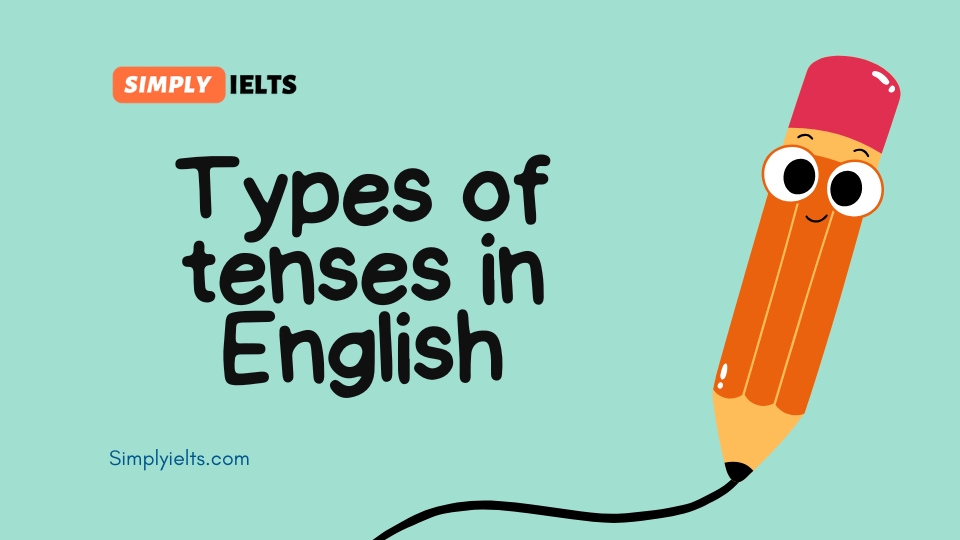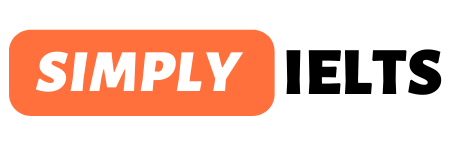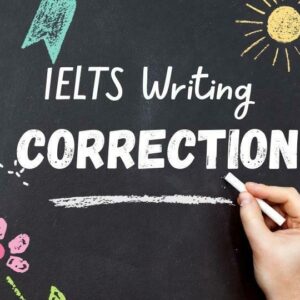Types of tenses in English Formula and examples

In this lesson from the free English course with certificate, Simply IELTS will tell you about the 12 types of tenses in English language with formula and examples.
In the next lessons, you will learn more about each tense, stay tuned.
What are English tenses?
English tenses are verb forms that show the time of an action or state of being.
- There are three main tenses in English: past, present, and future.
- Each of these tenses has a simple, continuous, and perfect form.
The simple tenses are used to express a single action or state, while the continuous tenses express an action or state that is ongoing. The perfect tenses express an action or state that is completed.
Here are the simple tenses in English:
Here are the continuous tenses in English:
Here are the perfect tenses in English:
There are 12 verb tenses in English:
- Present simple: used to describe a habit or routine, or a fact that is always true.
– Formula: subject + base form of verb
– Example: “I eat breakfast every day.” - Present continuous: used to describe an action that is happening now, or a temporary activity.
– Formula: subject + be + verb + -ing
– Example: “I am eating breakfast now.” - Present perfect: used to describe an action that was completed at an unspecified time in the past, or that began in the past and continues until now.
– Formula: subject + have/has + past participle
– Example: “I have eaten breakfast already.” - Present perfect continuous: used to describe an action that began in the past and is still ongoing.
– Formula: subject + have/has + been + verb + -ing
– Example: “I have been eating breakfast for an hour.” - Past simple: used to describe an action or state that happened in the past.
– Formula: subject + past form of verb
– Example: “I ate breakfast yesterday.” - Past continuous: used to describe an action or state that was ongoing in the past.
– Formula: subject + was/were + verb + -ing
– Example: “I was eating breakfast when the phone rang.” - Past perfect: used to describe an action or state that was completed in the past before another action or state.
– Formula: subject + had + past participle
– Example: “I had eaten breakfast before I left for work.” - Past perfect continuous: used to describe an action or state that began in the past and was still ongoing before another action or state.
– Formula: subject + had + been + verb + -ing
– Example: “I had been eating breakfast for an hour before the phone rang.” - Future simple: used to describe an action or state that will happen in the future.
– Formula: subject + will + base form of verb
– Example: “I will eat breakfast tomorrow.” - Future continuous: used to describe an action or state that will be ongoing in the future.
– Formula: subject + will + be + verb + -ing
– Example: “I will be eating breakfast at 8am tomorrow.” - Future perfect: used to describe an action or state that will be completed in the future before another action or state.
– Formula: subject + will + have + past participle
– Example: “I will have eaten breakfast before I leave for work.” - Future perfect continuous: used to describe an action or state that will begin in the past and be ongoing before another action or state.
– Formula: subject + will + have + been + verb + -ing
– Example: “I will have been eating breakfast for an hour before I leave for work.”
It’s important to pay attention to verb tense when speaking and writing in English, as using the correct tense can help make your sentences clear and easy to understand.





Responses